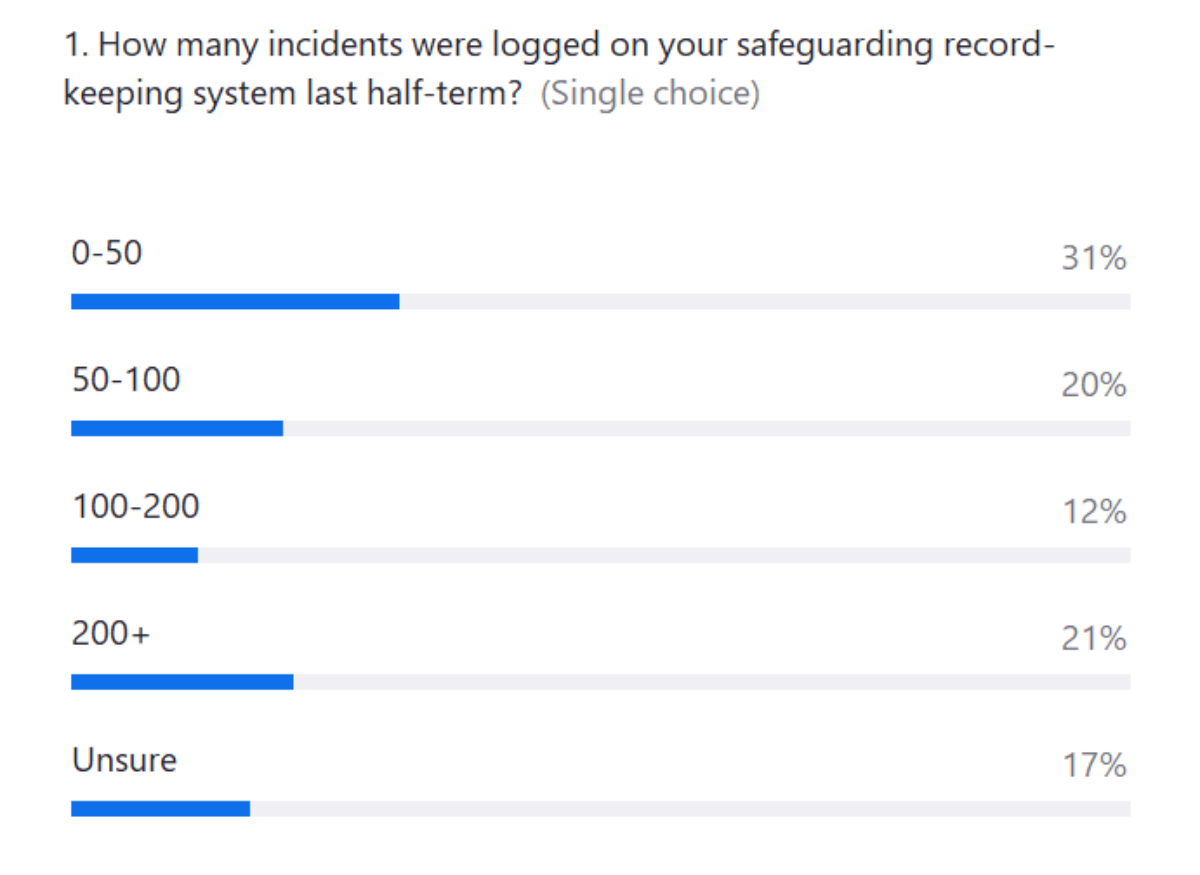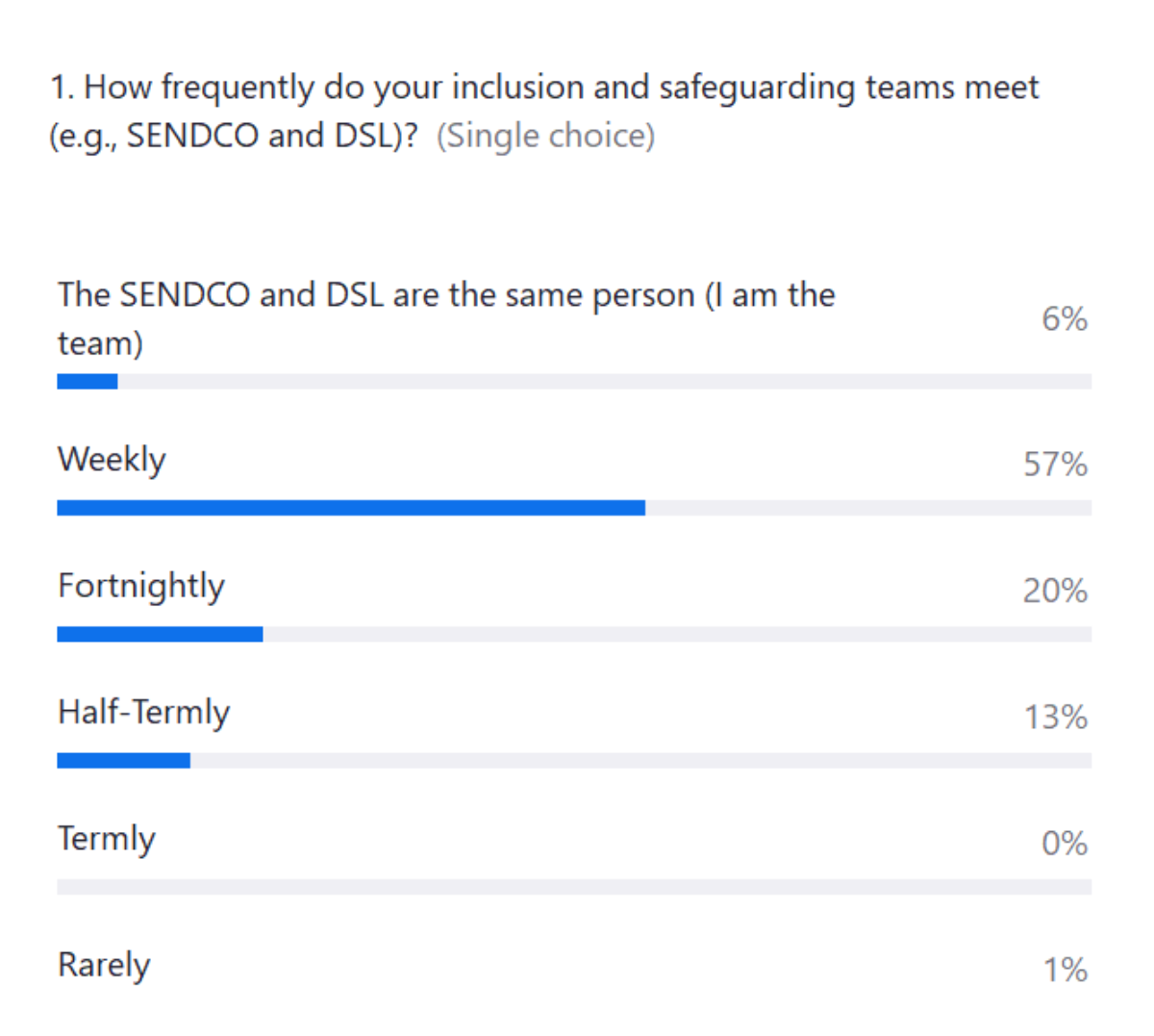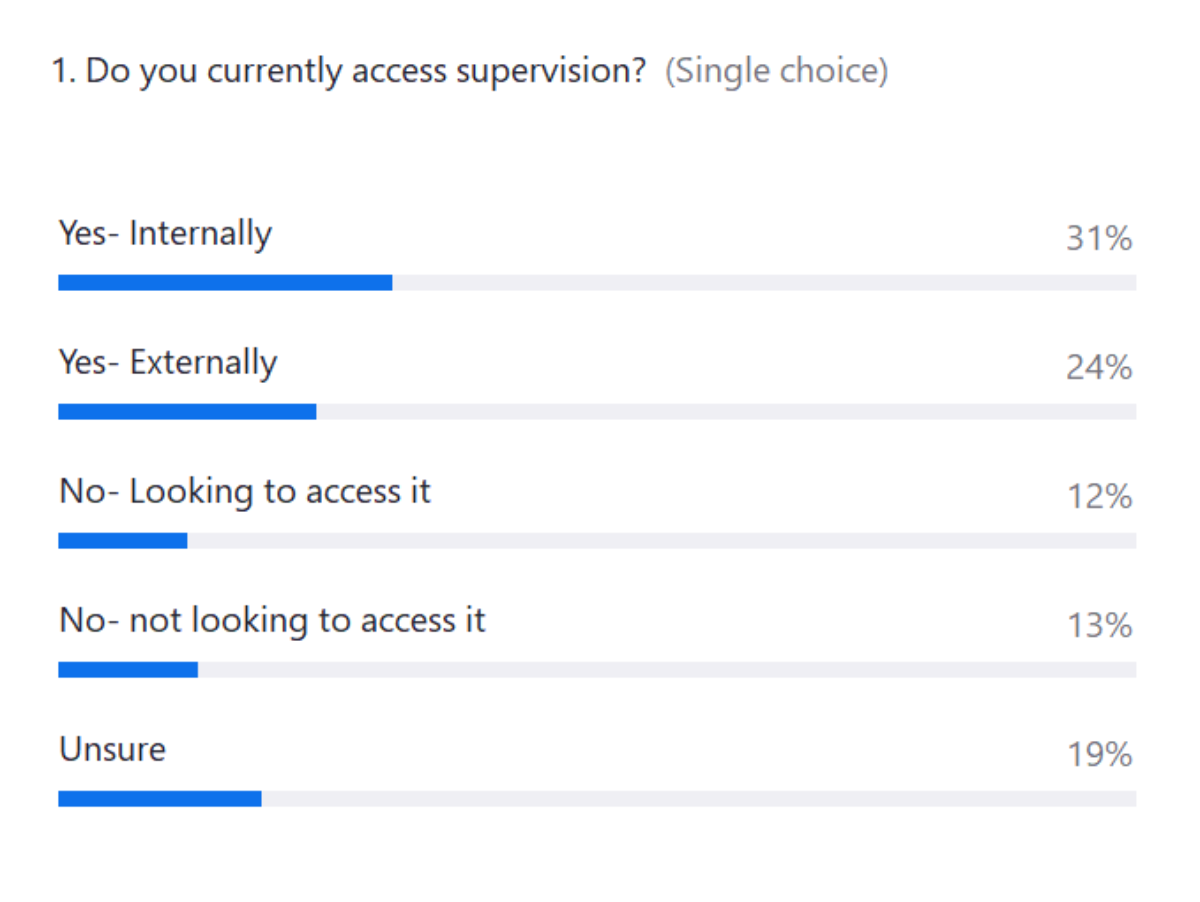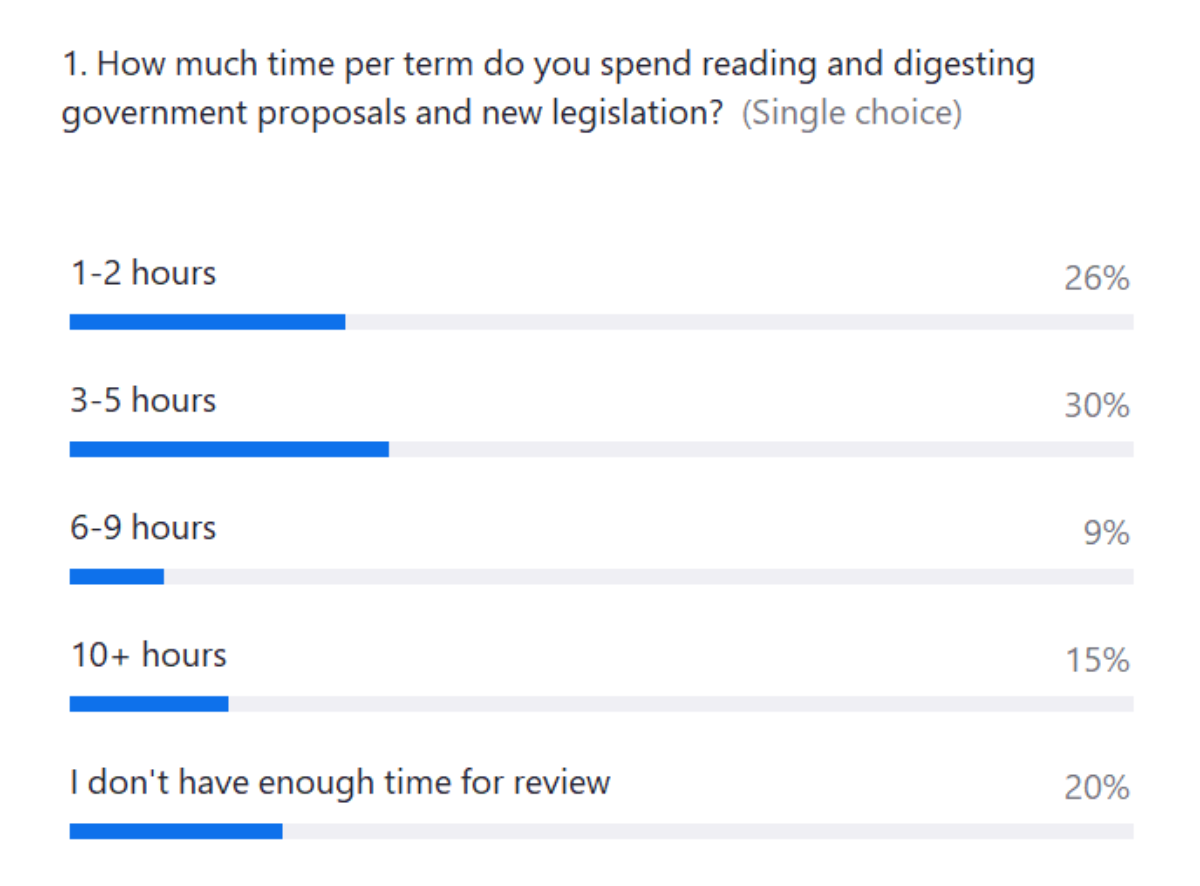Ofsted-Ready Starts Here: Fresh Thinking for SEND and Safeguarding

This is a summary taken from Judicium’s SEND and Safeguarding ‘Sofa Session’ from 5th November, with our Safeguarding and SEND consultants Rik Chilvers and Simon Hanley. In this session we discuss the new SEND and Safeguarding toolkit and how to best prepare for an Ofsted visit.
Poll 1

Safeguarding SEND Deeply Linked
Today's session reflects something we see in our visits to schools, and that is schools treat safeguarding and SEND as separate boxes. But the reality is that in real life and for inspection they are deeply linked.
In fact, the new School Inspection Toolkit for state-funded schools (2025) talks about a culture of safeguarding and it highlights that the most vulnerable children often sit at the point where SEND needs and safeguarding risks meet
"The school establishes an open and positive safeguarding culture that puts pupils’ interests first", (p.3).
And Schools:
"Are aware of and respond to some pupils’ increased risk of needing help and protection, including those with special educational needs and/or disabilities (SEND) and pupils who do not communicate verbally", (p.3).
In the School inspection operating guide for inspectors, it sets out for the inspector that they will:
"Explain that [they] will be looking at the culture of safeguarding across the school throughout the inspection".
The (School inspection operating guide for inspectors) also states that the lead inspector will have:
"The oversight on safeguarding".
Finally, in principle 2 of the School inspection operating guide for inspectors:
"Leadership, inclusion and whether there is an open and positive safeguarding culture are key areas of focus when gathering evidence".
Culture and Leadership
The first thing to say is that Ofsted does not just check whether your policies exist.
In the new documentation from Ofsted, we can see that safeguarding is seen as a culture – so it has to run through every part of the school. The Ofsted toolkit refers to an “open and positive safeguarding culture”(p.6), in its section on gathering evidence about safeguarding.
Inspectors will check:
- Leaders set the tone and model safeguarding.
- Every adult knows exactly what to do if they’re worried about a child — and that responses are swift and consistent.
- Low-level concerns, allegations and whistle-blowing are understood and followed.
- Staff, pupils and parents feel confident raising concerns.
- The school engages effectively with external partners and takes a whole-school approach rather than leaving it to the DSL.
Ofsted guidance makes it clear that they will sample individual pupils’ journeys, often the most vulnerable pupils, and follow the thread through records, plans, attendance, exclusions, behaviour, reviews. That means leaders need to be able to tell the story of the child and show the evidence of actions and impact.
They’ll also sample safer-recruitment records and how any allegations or low-level concerns about staff are handled. The single central record still forms part of the evidence base.
It also means that governance matters. Inspectors will talk to governors or trustees to see whether they understand the safeguarding picture, and whether they challenge and review it.
Inspectors will also talk directly with pupils. They’ll ask whether pupils feel safe, know who to talk to, and trust that adults act on their concerns. Their answers carry real weight.
They’ll also look for evidence that leaders don’t just say there’s a safeguarding culture — they can show it. That means clear communication, regular review, and a willingness to be challenged when practice could improve.
Records and Chronology
Inspectors in the Operating Guide say they don’t want schools to create a special ‘Ofsted folder’. They want to see ‘business-as-usual’ evidence.
That means your safeguarding logs, SEND records, attendance data, AP checks, early help referrals, and behaviour logs all need to be accurate, current, and accessible.
Example
Attendance data isn’t just about numbers. Inspectors will probe whether absence might point to neglect, exploitation or online harm, and how schools follow that up with timely action and joined-up records.
SEND pupils often have several parallel plans – an EHCP, behaviour plan, pastoral notes, incident logs, perhaps AP placement notes. Too often those don’t join up creating a real risk from a safeguarding perspective.
Inspectors often choose a specific child’s case to review the chronology of actions taken. It can be difficult to demonstrate that you acted promptly, proportionately, and reviewed or adjusted your response when the relevant evidence is spread across multiple systems or documents.
So it’s important to consider:
- How and where do your records sit?
- Are they joined up?
- Do they show overlap and joined-up work between all stakeholders involved in that pupil?
Poll 2

Vulnerability Beyond the School Gate
Inspectors look beyond the classroom.
The toolkit highlights that pupils who are persistently absent, on a reduced timetable, or placed in alternative provision are at heightened safeguarding risk.
The guidance for schools says you need to be able to show you know where that child is, that they’re safe, and that you keep their progress and welfare in view.
Being inspection-ready is having clear oversight systems:
- Daily attendance tracking.
- Welfare checks.
- Good information-sharing with AP or the home LA, and evidence that leaders and governors discuss these cases and review the impact of support.
Part of that wider safeguarding picture is how pupils are taught to keep themselves safe — including online. Inspectors will want to see that your online-safety policy and curriculum coverage are age-appropriate, progressive and clearly embedded
Common Red-flag Weaknesses
In our safeguarding audits, we see a few recurring actions or development points, and they all tie back to what the inspection framework now highlights.
- Fragmented chronologies – DSL and SENDCo keeping separate logs that don’t tell a single story.
- Oversight of off-site pupils – Leaders can’t easily evidence the checks on safety and progress for pupils on reduced timetables or in AP.
- Disconnect between SEND plans and safeguarding needs – For example, positive-handling plans that don’t reference the child’s underlying needs or safeguarding risk assessments.
- Staff gaps in understanding vulnerability – Especially around communication needs, exploitation risk, and the impact of trauma.
- Weak transitions – When pupils move in or out of AP or specialist settings and safeguarding handover is sketchy.
- Paper compliance – Policies and logs exist but there’s little evidence of review or impact.
We can summarise it as a simple readiness test using these three questions:
- Can you show a coherent chronology for a vulnerable pupil?
- Can staff explain the child’s needs and risks clearly and confidently?
- Can leaders show that actions were timely, proportionate, and reviewed for impact?
There’s a lot for DSLs to be on top off. It’s a challenging role and Ofsted recognises this. The framework advises although it is not compulsory, for DSLs to have access to supervision to ensure that burnout does not occur.
Poll 3

Safeguarding Audits - Experience From our Expert
I'm going to take you through some of the analysis from a safeguarding audit I conducted last year at a mainstream secondary school.
Leaders had robust safeguarding practices in place and demonstrated the positive impact of these throughout the day. However, when we discussed the safeguarding curriculum, topics that are typically covered in PHSE, RSE and online safety in Computing - leaders shared that this was covered during beginning of the day tutor time sessions. When I later spoke to teachers, they noted that these sessions were often functionally shorter than timetabled because of challenges getting students registered and distributing any messages. The sessions were also centrally planned, with slides and lesson plans being shared close to the sessions, which prevented teachers and support staff from adapting them to cater to the needs of the children in their class. Ultimately, this meant that disadvantaged children (e.g., those who often arrive at school later, or who have SEND) were not able to access quality teaching on safeguarding topics. This is an example of the depth to which we explore safeguarding processes when we conduct audits.
SEND - What We Do and Don't Know
This term, the government is due to publish the School's White Paper which it says "will set out an ambitious vision for improving outcomes for all pupils – in particular those with SEND and from white working class backgrounds." Unfortunately we don't know what the proposed timeline for the changes the paper sets out will be.
Over the past six weeks or so, a few documents have been published that indicate a good sense of the scale of the challenges faced by schools, children with SEND and their families.
The government recently released the Education Select Committee's report Solving the SEND Crisis. The urgency for an overhaul of the current system was not lost on the committee, who said:
"Change is not optional. It is urgent and essential. Every child and young person with SEND has the right to thrive in education. We must not wait another decade to make that a reality".
Although the committee does not recommend replacing the current system wholesale, the scale of the change needed is clear. Committee chair Helen Hayes noted that:
"Making sure every child in the country with SEND can attend a local school that meets their needs will require a root and branch transformation".
Poll 4

The recently published Children's Plan, a report on the school's census from the Children's Commissioner, touches on some similar themes. It notes that:
"The education system should have a broader understanding of additional needs, which include the needs of disabled children, children with learning needs, and children facing a broad range of barriers to learning".
Ofsted Inspects the Inclusivity of Your School
So, despite the publication of these documents, the timeline for changes to the SEND system remain unclear. However, what will change on the 10th November, is how Ofsted inspects the inclusivity of your school. Solving the SEND crisis makes clear that the DfE must define inclusive education. Whether or not they will do so directly remains to be seen. However, we can at least infer what Ofsted thinks defines inclusive education.
During our Sofa Sessions last year, we asked attendees whether they thought the new Ofsted framework should continue to have inclusion woven through, as a 'golden thread', or to have a discreet focus on it. It turns out that this was a false dichotomy: Ofsted have both elevated the scrutiny of inclusion by making it one of the seven areas they will consider, as well as highlighting the importance of meeting children's needs throughout the other sections.
The inspectors' handbook now notes:
"The initial sample [for learning walks] should include pupils who have specific needs or face particular barriers to learning. This may include disadvantaged pupils, those with SEND (especially those with an EHC plan), those known (or previously known) to children’s social care, and those who face other barriers to their learning and/or well-being".
High Expectations and Inclusive Culture
Just like safeguarding, Ofsted want to see that schools have an inclusive culture.
- Inspectors expect schools to set high expectations for all pupils, including those with SEND, and avoid lowering standards.
- A culture of early and accurate assessment of needs is prioritised to prevent pupils from falling through gaps.
- A qualified SENCo should have leadership status to drive whole-school improvement for SEND.
Identification and Assessment
Leaders must:
- Quickly and accurately identify emerging or changing needs. This includes ensuring that all staff are able to identify disadvantaged pupils, those with SEND, those known (or previously known) to social care, and those who face other barriers to their learning and/or well-being.
- Understand that effective inclusion starts with high-quality everyday teaching, reducing reliance on individual adaptations.
- Be able to evidence the impact of the support given to pupils, and if and how that impact is monitored and reviewed.
Continuous Support Cycle
Use the graduated approach Assess → Plan → Do → Review, ensuring support is appropriate and regularly evaluated.
Specialist Involvement
- Schools should consult external specialists when necessary and implement their advice.
- Ensure reasonable adjustments are made under the Equality Act 2010 and SEND Code of Practice.
Collaboration and Communication
- Work closely with parents, valuing their knowledge and views.
- Engage pupils in decisions about their support.
- Promote the local offer and help families access available services.
Safe and Suitable Provision
- Any alternative provision used must be safe and in pupils’ best interests.
- The school accessibility plan must meet Equality Act requirements, be implemented effectively, and reviewed regularly.
- Inspectors will review the school's timetable, how the curriculum is organised and the use of part-time timetables to be assured that children with SEND have comparable access to education as their peers.
Monitoring and Review
Leaders should:
- Monitor progress and well-being of pupils with SEND.
- Review adaptations systematically and make changes where needed.
- Support successful transitions (into school, between phases, or into adulthood).
(AI ends)
SEND Support Service
A contributor to the Select Committee's report noted that, to be ready for the new Ofsted framework,
"schools will want to make sure that they have the best training and the best support available for their workforce to deliver on [the provision of inclusive education".
This is where Judicium can help. Our supportive SEND reviews are designed to identify your school's areas of strength and the priority areas for you to develop. A school we reviewed last year improved from RI to Outstanding, with inspectors specifically noting the quality of SEND provision. Through learning walks, interviews with leaders, focus groups with key stakeholders and questionnaires, we gather a comprehensive understanding of your inclusive provision, culture and strategy and create an action plan.
How Judicium can help...
You can find information regarding our Safeguarding and SEND service.
If you require any support in any of these steps or would like to talk to someone surrounding some support for your school, please do not hesitate to call us on 0345 548 7000 or email enquiries@judicium.com
Follow us on Twitter: @DPOforSchools and @JudiciumEDU
© This content is the exclusive property of Judicium Education. The works are intended to provide an overview of the sofa session you attend and/or to be a learning aid to assist you and your school. However, any redistribution or reproduction of part or all of the contents in any form is prohibited. You may not, except with our express written permission, distribute or exploit the content. Failure to follow this guidance may result in Judicium either preventing you with access to our sessions and/or follow up content.
Related content

This blog is based on Judicium’s Safeguarding ‘Sofa Session’ from the 4th February 2026, with our resident experts Joanne Bocko and Sarah Cook.
.png)
This is a summary from Judicium’s Safeguarding and Thrive ‘Sofa Session’ from 3rd December, with our Judicium Safeguarding consultant Joanne Bocko, Thrive Head of Innovation and Principal Trainer, Viv Trask-Hall and Director of Thrive, Tom Preston. Drawing on decades of combined experience in safeguarding, governance, SEND, leadership, and mental health, the panel unpacked how the framework’s shifts will impact schools, what Ofsted will be looking for, and how leaders can position themselves for success.
.png)
This blog is based on Judicium’s Safeguarding Client Survey Uncovered - Insights from the sofa session from 8th October with our Safeguarding Consultant Joanne Bocko.
.png)
This blog is based on Judicium’s Safeguarding - Back to school: Are you KCSIE ready? sofa session from 10th September with our Head of safeguarding, Kate Massey . In this session we take a look at the key updates for KCSIE 2025, and how best to prepare for the start of the new academic year.

This blog is based on Judicium’s Safeguarding Supervision On The Sofa: Your DSLs Safe Space ‘Sofa Session’ from the 25th June 2025, with our resident experts Helen King and Sarah Cook.
).png)
Supervision is dedicated time for professionals to reflect openly on the challenges of the cases they manage. This blog explores the common misconceptions, myths and the all important benefits to Safeguarding Supervision. Don't miss our Safeguarding Sofa Session on Supervision: Your DSLs safe space on 25th June at 10am OR 11:30am.

Sofa Sessions | Safeguarding